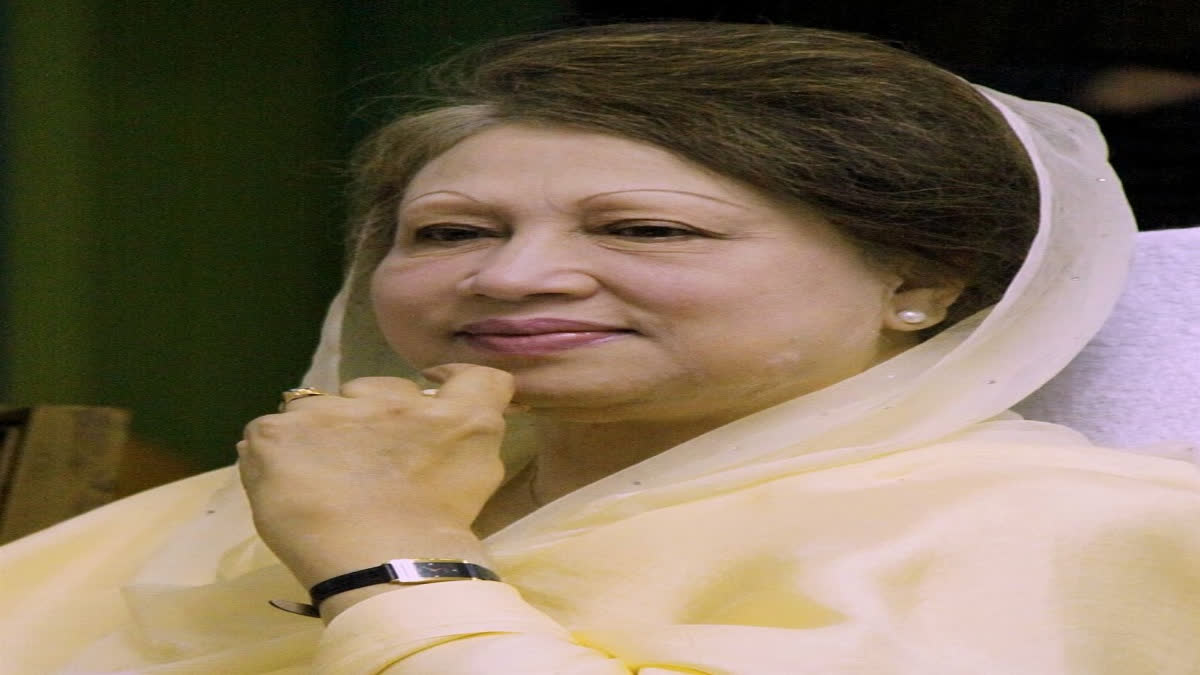New Delhi: Ahead of the parliamentary elections to be held towards the end of this year or the beginning of next year, ailing former Bangladesh Prime Minister Khaleda Zia, who is currently under house arrest, has again been denied permission to go abroad for treatment. Home Minister Asaduzzaman Khan said on Monday that there is no scope to change the decision about sending Bangladesh Nationalist Party (BNP) chairperson Khaleda Zia abroad for treatment after the country’s Law Ministry gave its opinion on Sunday.
“As there are legal complications in this regard, I sent the letter to the Law Ministry to know their opinion. The Law Ministry informed us that it is not possible. I do not think there's anything else we can do now,” Khan told the local media. Khaleda was sent to prison in February 2018 after she was sentenced to a total of 17 years in two separate corruption cases involving the Zia Orphanage Trust and the Zia Charitable Trust.
She was initially kept at Old Dhaka’s abandoned central prison, but in April 2019, she was shifted to the Bangabandhu Sheikh Mujib Medical University for treatment. Following the COVID-19 pandemic outbreak, the government temporarily freed Khaleda from jail through an executive order by suspending her sentence on March 25, 2020, with conditions that she would stay at her residence in the Gulshan locality of Dhaka and would not leave the country.
Following this, her release term has been extended every six months given her family’s plea. The latest extension came into effect on September 25. Khaleda, 78, has been suffering from various ailments, including liver cirrhosis, arthritis, diabetes, kidney, lung and eye problems and post-COVID complications. She has been undergoing treatment at Evercare Hospital in Dhaka since August 9.
Her supporters have been demanding that she be taken abroad for treatment. The ruling dispensation, however, citing legal complications, has denied her permission to go abroad. According to the law, Khaleda will have to go back to jail and then approach the court to seek permission to go abroad. She, however, has refused to do so.
“Prime Minister Sheikh Hasina allowed house arrest for Khaleda on compassionate grounds,” Sharin Shajahan Naomi, an academic and social activist of Bangladesh, who is currently pursuing her post-doctoral fellowship at KREA University in India, told ETV Bharat. “But the BNP wants to take her to Germany for treatment.”
Naomi said that this was strange as the normal practice for people in Bangladesh seeking medical treatment abroad is to go to either of three countries – India, Singapore, or Thailand. “The treatment cost in Germany is much higher,” she pointed out. “I see a larger political motive here. Khaleda might either seek political asylum or she may move to the UK to meet her son.”
